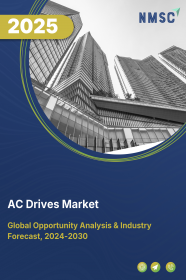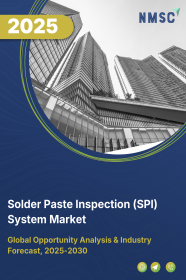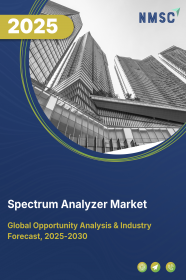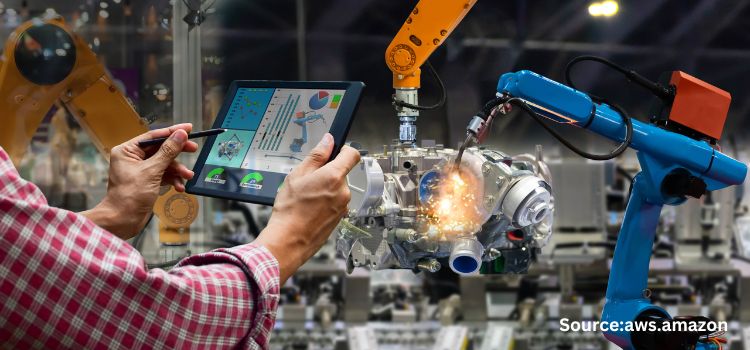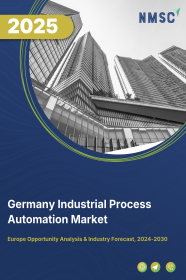
Germany Industrial Process Automation Market by Component (Manufacturing Execution System (MES), Distributed Control System (DCS), Programmable Logic Control (PLC), Supervisory Control & Data Acquisition (SCADA), Field Instruments, Industrial Robots, Process Analyzers and Drives, and Others), and by End-User (Oil & Gas, Chemical & Refining, Energy & Power, Pulp & Paper, Metals & Mining, Pharmaceutical, Cement & Glass, and Others) – Opportunity Analysis and Industry Forecast, 2024–2030
Industry: Semiconductor & Electronics | Publish Date: 17-Feb-2025 | No of Pages: 160 | No. of Tables: 122 | No. of Figures: 67 | Format: PDF | Report Code : SE984
US Tariff Impact on Germany Industrial Process Automation Market
Trump Tariffs Are Reshaping Global Business
Germany Industrial Process Automation Market Overview
Germany Industrial Process Automation Market size was valued at USD 5.06 billion in 2023, and is predicted to reach USD 6.83 billion by 2030, at a CAGR of 3.8% from 2024 to 2030.
The industrial process automation market represents the sector that delivers technologies and systems aimed at monitoring, controlling, and optimizing industrial operations. It involves integrating advanced computer technology, hardware, and software to automate critical processes such as inventory management, manufacturing, production, and quality control.
Key technologies driving automation in this market include sensors, programmable logic controllers (PLCs), human-machine interfaces (HMIs), and supervisory control and data acquisition (SCADA) systems. This market supports industries such as oil and gas, chemical processing, food and beverage, and pharmaceuticals, where automation is essential for enhancing efficiency, improving product quality, and ensuring workplace safety.
By reducing operational costs and minimizing human errors, industrial process automation helps companies streamline production processes, delivering higher output with greater precision. As businesses aim to improve productivity and remain competitive in an increasingly automated global manufacturing landscape, the demand for industrial process automation solutions continues to rise.
Rising Demand for Automation in Manufacturing Sector Boosts Market Growth
Germany is recognized as a global leader in industries such as chemical, electrical, automotive, and mechanical engineering. The automotive sector, including major brands such as Volkswagen, Mercedes-Benz, Audi, and Porsche, has a significant demand for industrial automation solutions.
To meet growing consumer demand, these automakers are increasingly utilizing automation technologies, including Human-Machine Interface (HMI) systems and industrial robots, to streamline internal logistics within their facilities. The broader European region also sees rising demand for process automation due to increased industrialization and the spread of automation across various sectors.
According to the Organization for Economic Cooperation and Development (OECD), Germany invests 2.9% of its GDP in manufacturing innovation, surpassing the OECD average of 2.4%. This substantial investment has significantly enhanced Germany's standing in global automotive manufacturing over recent decades, reflecting its leadership in industrial process automation market.
Technological Advancements Drive Market Growth
Technological advancements are significantly driving the growth of the industrial process automation market. Major industry players, such as Siemens, Schneider Electric SE, and Emerson Electric Company, are making substantial investments in new technologies such as cloud computing, artificial intelligence (AI), and advanced robotics to stay ahead.
This integration is designed to optimize factory operations and improve productivity, highlighting how cutting-edge technology is reshaping the industry. These advancements are expected to propel the Germany industrial process automation market growth, as businesses seek to leverage new technologies to stay competitive and innovate.
Lack of Standardization Hinders the Growth of Industrial Process Automation Market
The lack of standardization is a major challenge that can limit the growth of the industrial process automation market. Without common standards, vendors may develop proprietary systems that are hard to replace or upgrade.
This can result in vendor lock-in, where companies become dependent on a specific vendor’s technology, restricting their ability to switch to other vendors. Vendor lock-in often leads to increased costs, reduced flexibility, and less innovation, that negatively affect market growth. Companies might hesitate to invest in automation systems if they are worried about being tied to one vendor’s technology, further slowing the Germany industrial process automation market expansion.
Industry 4.0 Technologies Paving the Way for Future Automation Opportunities
The progress in industry 4.0 technologies, including the internet of things (IoT), cloud computing, and artificial intelligence (AI), is generating considerable opportunities for the industrial process automation market.
These advancements enable companies to gather and analyze vast amounts of data in real time, offering critical insights into their operations and identifying areas for improvement. As technology continues to advance, industry participants are partnering with tech-focused firms to create new solutions based on established technologies.
Competitive Landscape
Several key players operating in Germany industrial process automation industry include Siemens AG, Honeywell International, Schneider Electric, Mitsubishi Electric, Rockwell Automation, Emerson Electric Co., ABB Ltd., Omron Corp, FANUC Italia, S.r.l., Yokogawa Electric Corporation, General Electric Company, Johnson Controls, B&R Industrial Automation, Endress+Hauser, KEBA Industrial, and others.
Germany Industrial Process Automation Market Key Segments
By Component
-
Manufacturing Execution Systems
-
Hardware
-
Software
-
Services
-
-
Distributed Control Systems
-
Hardware
-
Software
-
Services
-
-
Programmable Logic Control
-
Hardware
-
Software
-
Services
-
-
Supervisory Control and Data Acquisition (SCADA)
-
Hardware
-
Software
-
Services
-
-
Field Instruments
-
Industrial Robots
-
Process Analyzers & Drives
-
Others
By End-User
-
Oil & Gas
-
Chemical & Refining
-
Energy & Power
-
Pulp & Paper
-
Metals & Mining
-
Pharmaceutical
-
Cement & Glass
-
Others
Key Players
-
Siemens AG
-
Honeywell International
-
Schneider Electric
-
Mitsubishi Electric
-
Rockwell Automation
-
Emerson Electric Co.
-
ABB Ltd.
-
Omron Corp
-
FANUC Italia, S.r.l.
-
Yokogawa Electric Corporation
-
General Electric Company
-
Johnson Controls
-
B&R Industrial Automation
-
Endress+Hauser
-
KEBA Industrial
REPORT SCOPE AND SEGMENTATION:
|
Parameters |
Details |
|
Market Size in 2023 |
USD 5.06 Billion |
|
Revenue Forecast in 2030 |
USD 6.83 Billion |
|
Growth Rate |
CAGR of 3.8% from 2024 to 2030 |
|
Analysis Period |
2023–2030 |
|
Base Year Considered |
2023 |
|
Forecast Period |
2024–2030 |
|
Market Size Estimation |
Billion (USD) |
|
Growth Factors |
|
|
Companies Profiled |
10 |
|
Market Share |
Available for 10 companies |
|
Customization Scope |
Free customization (equivalent up to 80 working hours of analysts) after purchase. Addition or alteration to country, regional, and segment scope. |
|
Pricing and Purchase Options |
Avail customized purchase options to meet your exact research needs. |

















 Speak to Our Analyst
Speak to Our Analyst



